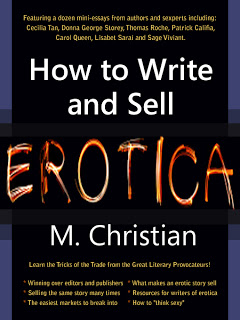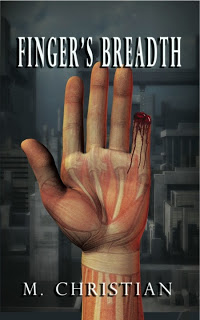It’s
one of the most common questions I get asked – by budding writers via email or in
person during one of my (ahem) Sex Sells: Erotica Writing classes: what makes
an erotic story … erotic?
But
before I answer [insert suspenseful music here] a bit of exposition is in
order: there is a huge difference in
writing for yourself, such as when you are first dipping your … toes
into erotica writing, and when you’ve made the very brave decision to throw
your work out into the professional world.
If
you are writing for yourself then you really don’t need to be thinking about
sex (or the amount of it) at all: you’re writing for your pleasure, or just as
practice.
But
if you do decide to send your work out you really do need to be pay
close attention to where you’re submitting: when a publisher or editor puts out
a call for submissions they are often – or should be – quite clear about the
amount of sexuality they need or want from a writer. If you’re sending a story, say, to a site, anthology or
whatever it’s always a good idea to scope out the territory, so to speak: read
what the editor has accepted before, take a gander at the site … and so forth. That, at least, should give you a
ballpark feeling of what (and how much) they are looking for.
But
[insert dramatic drum roll] as far as the right, perfect, ideal, amount of sex
for a story that isn’t just for your own pleasure, or a very specific market, goes
… well, what’s sex?
Far
too often beginning (or even seasoned pros) have the idea that there’s a
required amount of sex, of detail, of activity, that makes a story erotic: they occassionally even have a
percentage guide – or a shopping list of required activities (oral followed by
penetration culminated by mutual orgasm, etc).
There’s
also the belief that unless a story arouses them – or a publisher, editor,
random reader, whoever – then it isn’t sufficiently erotic … and so needs
more sex.
But
both of these views are, frankly, wrong.
Erotica can be a remarkably flexible genre: it can be about anything to do with sex, sensuality,
eroticism, whatever … there isn’t a set rule of amount or variety of sex that
has to take place.
I’ve
sold (as a writer) and bought (as both an anthology editor as well as a book
publisher), work that has a wide range of both quantity as well as assortment
of sex and sensuality – though, once again, unless the project is upfront about
requiring a certain kind, or amount, of sexuality.
And
as for turning anyone on, I always remind people that there is absolutely no
way to know what will turn anyone on – so it’s impossible to judge the amount of sex in a story by anyone’s
(not to be sexist) Peter Meter. Once again, as a writer I’ve sold, and
as an editor and publisher I’ve bought, many stories that I personally wasn’t
aroused by – and many writers and editors feel the same way.
So
… sex. What I meant by what’s sex is that sex
can be a lot of things to a lot of people. The erotic content in a story or book can be page after page
of bumpy-grindy or lyrically sensual where actual penetrative sex (of any kind)
never actually takes place. Sex
can be fantasy, without any reality.
It can be sense memory. It
can be masturbation. It can be
pleasure from extreme sensation.
It can even be bittersweet, disturbing, or even sad.
Sex,
in short, can be anything. Speaking
as a writer, I love to play with what sex can be about – often trying to really
push the literary envelope.
Speaking as a publisher, I love it when a book or story crosses my path
that says something – that really plays with the idea of what sex can be in
a new and surprising way.
Erotica,
to wrap it up, can be anything (caveats for specialized markets, of
course). There is no magic formula
for amount or activity, arousal is no judge of quality or quantity: your erotic
writing playground is as vast as your imagination–
–as
vast as sex itself.










